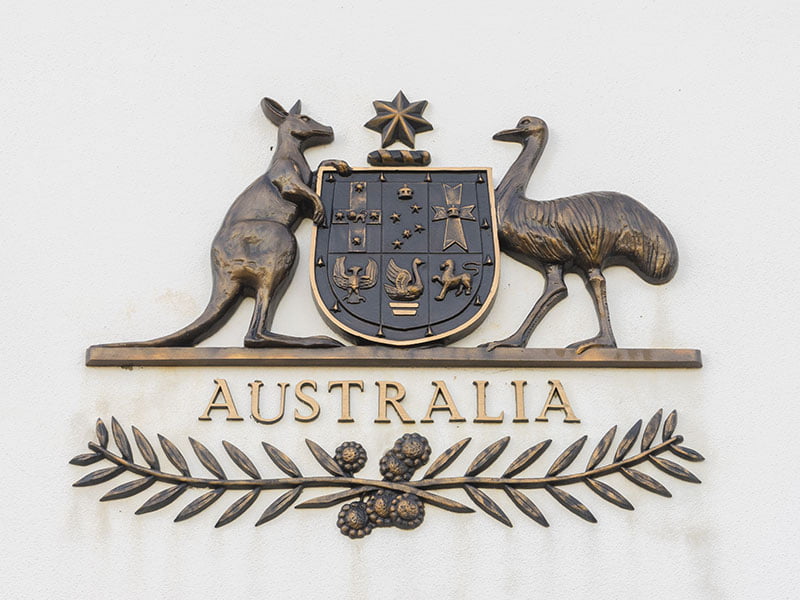The Digital Transformation Agency has signed its seventh whole-of-government purchasing agreement with a foreign-headquartered tech giant – this time it is with Oracle – with the expressed aim to make it easier for government customers to buy from these multinational firms.
It is worth noting again, that the DTA has not entered any such preferential arrangement with an Australian technology provider. According to local companies contacted by InnovationAus this week, it has shown no inclination to do so.
While Australian tech companies have sought to open discussions with the DTA that might lead to such an arrangement, they have met with – so far – little interest and zero success.
At a time when state governments have increasingly looked at using their purchasing power to build local capability and capacity with a willingness to steer the billions of dollars in tech procurement dollars toward industry development, the federal government remains captive to the dominance of a handful of international tech giants.

The DTA has signed seven of these volume sourcing agreements, with AWS, Concur, IBM, Microsoft, Oracle, Rimini Street, and SAP. Six of these companies are multinationals headquartered in the US, with SAP headquartered in Europe.
With Concur having been acquired by SAP, it could be argued that two companies are now European-headquartered. The fact that SAP seemingly has two such purchasing arrangements with the federal government is consistent with SAP’s dominance in Canberra.
On current purchasing activity, it would surprise no-one if US companies like Salesforce or even Adobe in the longer term were added to this elite crew of preferred foreign providers to the Commonwealth.
It has to be acknowledged that whole-of-government contracts are not a golden ticket to massively increased sales. WoG contracts come with commitments from the vendors that are not always appetising.
But their primary purpose is to “make it easier” – according the helpful explainer published with the Oracle announcement last week – to buy through the volume sourcing agreement. These arrangements are published through the DTA websites to make them more accessible.
The friction removed from the process is the preferential treatment, as is the co-marketing of the arrangements by the government and the vendor to propagate these volume sourcing contracts. At least the minister’s office of Stuart Robert stepped back from heralding the latest agreement with a foreign provider on official Australian Government letterhead as has occurred in the past.
These WoG agreements are a negotiated outcome based on indicative future volumes, providing a degree of certainty about revenue that de-risks investment decisions. Which is very nice for them, and would be equally welcomed by the bigger Australian tech companies supplying to government were they given the chance.
Any friction removed from purchasing arrangements for one provider over another is a leg-up. Preferential treatment. The same can be said for co-training commitments to build a workforce for a particular vendors systems.
Which brings us to the Digital Marketplace, which is most often touted as a vehicle to enable more and better opportunities for Australian suppliers to sell into government. The Digital Marketplace does not operate as a marketplace, and certainly does not operate as it was originally intended.
The DTA publishes an almost entirely meaningless set of metrics about SMEs selling through the marketplace.
For example, it says 70 per cent of the $2.7 billion sold via the marketplace since 2016 has been awarded to SMEs. So what? Given the federal government has spent $35 billion to $40 billion over that period, what does it tell you? Nothing.
There are no public metrics to suggest that the performance of Australian SMEs of Australian tech providers more generally in selling to the federal government has improved. The numbers are meaningless.
The fact that the top ten sellers on the Digital Marketplace for the financial year are all recruitment firms – ten out of the top ten – tells you the marketplace is largely a bodyshop panel.
More telling is an insight that says just 30 per cent of the contracts awarded through the Digital Marketplace were “open to all”. The other 70 per cent were limited opportunities, with only selected sellers allowed to apply.
These limited tenders, in which only selected suppliers are allowed to bid for a job, have resulted in contracts with enormous dollar values. In the case of the GovDXP project, a limited tender for a digital prototype won by Deloitte has mushroomed into a project that has cost tens of millions of dollars.
At a time when the Australian Government is talking a big game about building sovereign capability in areas of strategic importance, the bureaucracy is barely giving this clear direction lip-service in relation to its information technology.
The whole-of-government contracts in technology are not the problem. The fact that the Commonwealth is only interested in signing them with foreign companies is a very big problem.
The lack of interest in building local tech companies in the information technology supply chain is utterly stunning.
InnovationAus will next week publish the results of a survey it conducted on the experience of the IT industry in selling to government. Those people who responded to the survey will get an advance copy of the results on Friday.
Do you know more? Contact James Riley via Email.

